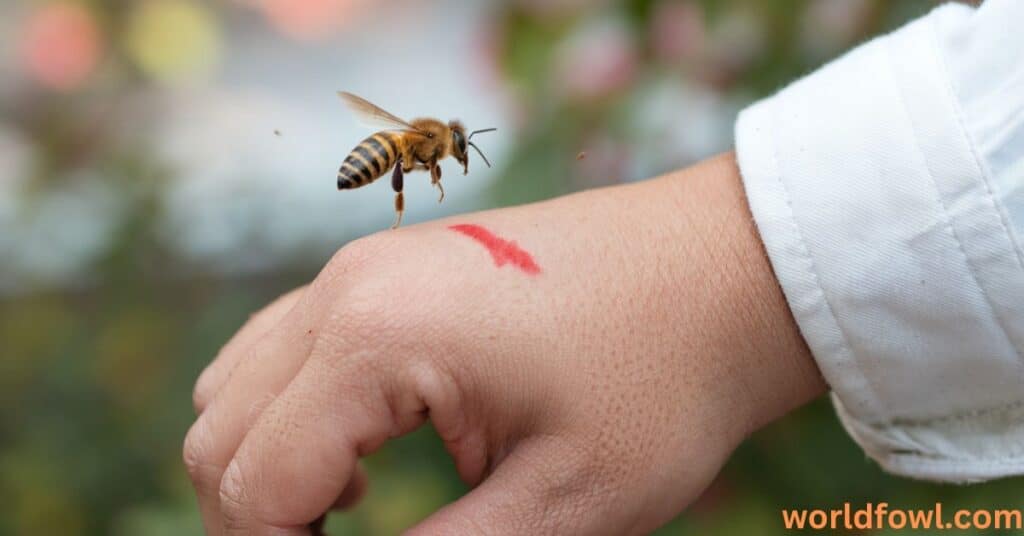Bees play an indispensable role in our environment, but most of us don’t realize just how crucial it is to understand their behavior—especially when it comes to bee attacks. Whether you’ve been stung while walking through a garden or are simply curious about what triggers these seemingly peaceful creatures to turn aggressive, understanding the roots of bee behavior is essential. So, Why Do Bees Attack Humans?
And how can we avoid these stings without disturbing their vital roles in pollination?
In this post, we will explore the science behind bee attacks, including the protective instincts of bees, what triggers their aggression, and practical tips to minimize risks when interacting with them. We will also discuss the environmental importance of bees and the threats they face due to climate change, pesticides, and bee population decline.
Understanding Bee Behavior
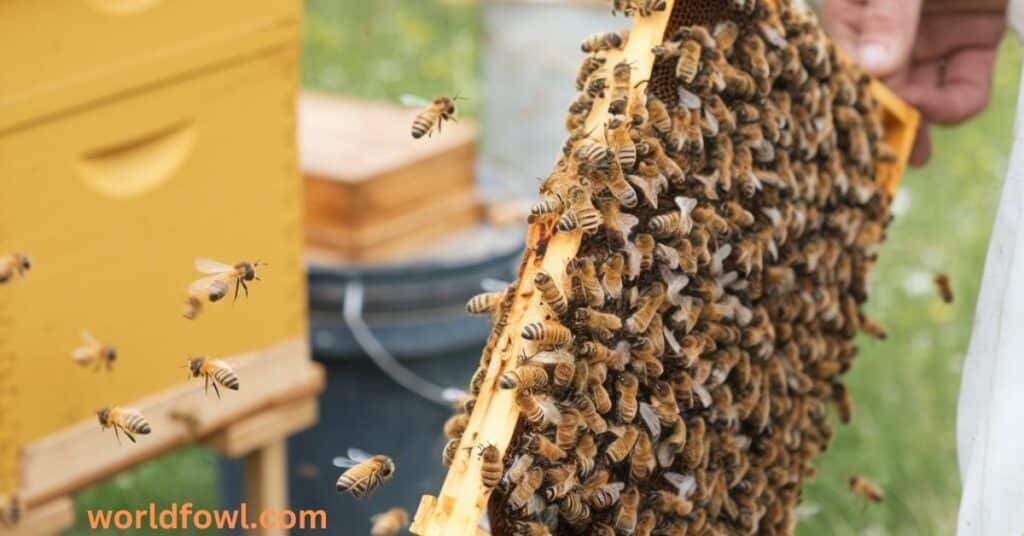
Before diving into why bees attack humans, it’s important to understand their behavior and the role they play in their hives and ecosystems. Bees are incredibly social creatures, living in well-organized colonies that are structured around a queen bee, worker bees, and drones. Their primary goal is to protect the hive, forage for nectar, and, most importantly, ensure the survival of the colony.
Bees and Their Protective Instincts
Bees are naturally defensive animals. The main purpose of their aggression isn’t to harm humans or other animals but to protect the hive. The queen bee is the heart of the colony, and her survival is essential for the hive’s long-term health. Worker bees, tasked with defending the hive, are equipped with stingers to ward off threats.
When a threat is perceived—whether by sudden movements or disturbing their territory—bees will release alarm pheromones that signal other bees to prepare for an attack. These defense mechanisms are necessary for the survival of the colony.
What Triggers Bee Attacks?
So, what exactly triggers a bee attack? While bees are generally peaceful creatures, they can become aggressive when they feel their hive, territory, or queen bee is under threat. Understanding these triggers can help prevent unwanted bee encounters.
See Also : Do Hummingbirds Attack Humans? Unexpected Aggressors!
Reasons Bees Attack Humans
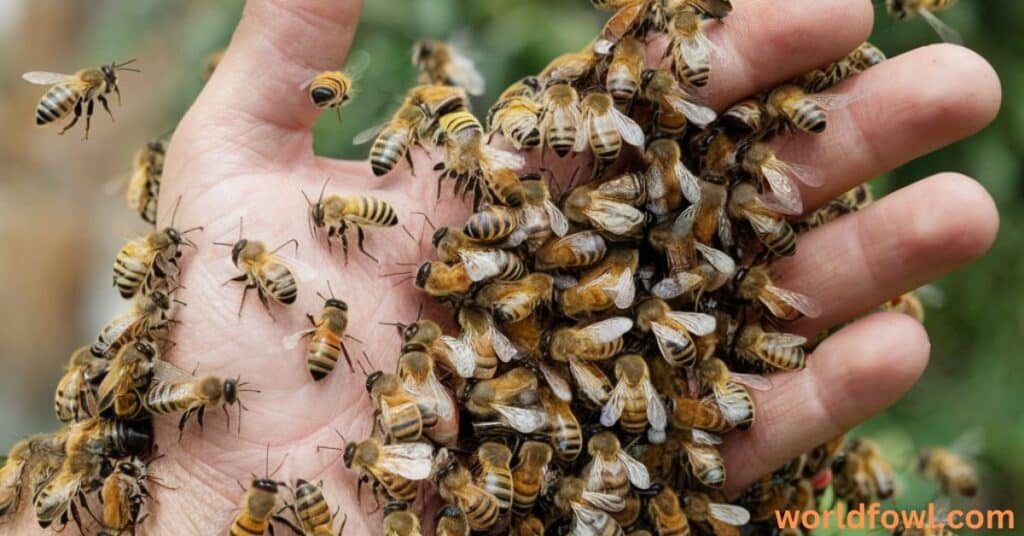
Now that we have a basic understanding of bee behavior, let’s explore the specific factors that may lead to bee attacks on humans.
Perceived Threat to the Hive
The most common reason bees attack humans is a perceived threat to their hive defense. Bees are extremely protective of their home, and any sign of intrusion—such as a person coming too close to their nest or disturbing their hive—can trigger an aggressive response.
- Territorial Defense: Bees are territorial animals. If they sense that their home is being threatened, they will swarm to protect it.
- Queen Bee Protection: Worker bees are especially aggressive when they sense any danger to the queen bee, who is the only female capable of reproduction in the hive.
Case Study: Africanized Honeybees
The Africanized honeybee, often known as the “killer bee,” is a perfect example of how a bee’s defensive instincts can lead to bee attacks. These bees are much more aggressive than their European counterparts and will aggressively defend their hives, often pursuing intruders much farther than normal bees.
Response to Sudden Movements
Bees are highly sensitive to sudden movements. Quick, jerky actions can startle them and trigger an attack. Their primary defense mechanism is to sting, and sudden movements are often interpreted as a threat.
- Why Sudden Movements Trigger Attacks: Quick movements can cause bees to feel threatened, leading them to act defensively by stinging.
- How to Avoid Provocation: Slow, deliberate movements can help prevent startling the bees and reduce the chance of aggression.
Attraction to Certain Scents
Bees have a strong sense of smell, which plays a crucial role in both foraging and defense. Certain scents and bees can attract or provoke them, leading to potential stings.
- Perfumes and Fragrances: Sweet-smelling perfumes or strong fragrances may mimic the smell of flowers, causing bees to become curious or confused, potentially leading to an attack.
- Sweat and Body Odors: Bees may also be attracted to the salt in human sweat or the natural oils in body odor, increasing the likelihood of interaction.
Provoked by Noise and Vibrations
Bees are incredibly sensitive to vibrations and noise. Loud sounds, especially those from machinery or even from talking, can set off the colony’s alarm system. When bees sense vibrations, they may assume a threat is nearby, causing them to become defensive.
- What Happens When Bees Hear Noise: Noise, particularly from low-frequency sounds, can confuse and disturb bees. This disturbance can trigger an aggressive response.
- Bees and Vibrations: Studies have shown that bees are sensitive to both sound and vibrations, which can lead to an increase in bee attacks if they feel disturbed by them.
See Also : Do Ostriches Attack Humans? The Shocking Truth!
Additional Factors That Contribute to Bee Stings
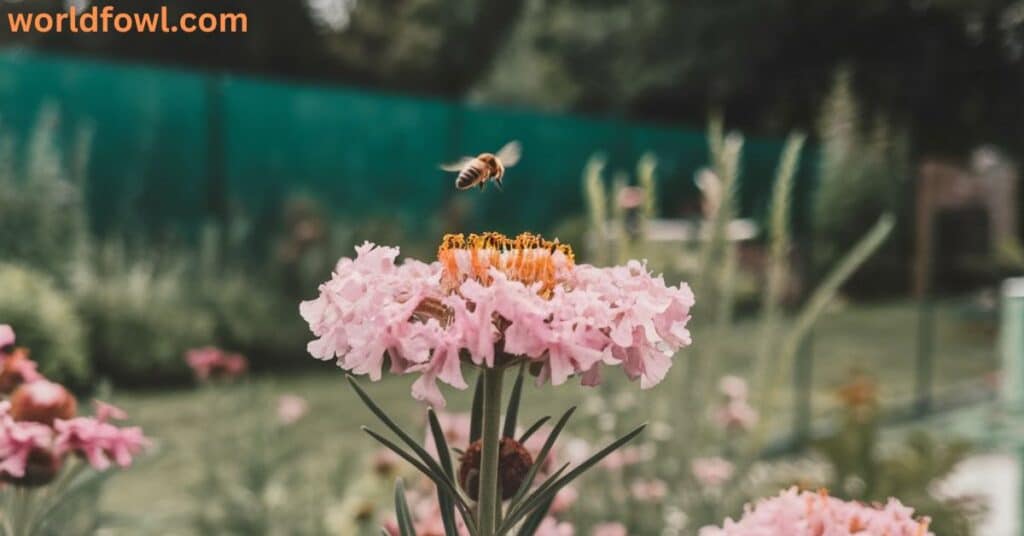
While the above triggers are the most common, there are other factors that can lead to bee attacks on humans.
Aggressive Bee Species
Not all bees are equally aggressive. For example, Africanized honeybees are known to be far more aggressive than European honeybees. In some regions, these aggressive species have displaced the more docile varieties, leading to increased instances of bee attacks.
Bee Swarming Behavior
Swarming season, which typically occurs in spring and early summer, is another time when bees are more likely to become agitated and aggressive. During this time, the colony divides, and a group of bees leaves the hive to form a new colony. While swarming, bees are more easily irritated and more likely to attack anyone who gets too close.
- How to Avoid Swarms: If you encounter a swarm of bees, it’s important to remain calm and slowly walk away from the area. Swarming bees are generally not looking to sting, but if they feel threatened, they may act defensively.
Disturbing Nesting Sites
Bees will attack humans if they feel their nesting sites are disturbed, especially when the hive is near food sources like flowering plants or fruit trees. If you accidentally come across a hidden bee nest in a tree or wall, it’s essential to leave the area immediately.
See Also : Do Jack Rabbits Attack Humans?
How to Avoid Bee Attacks
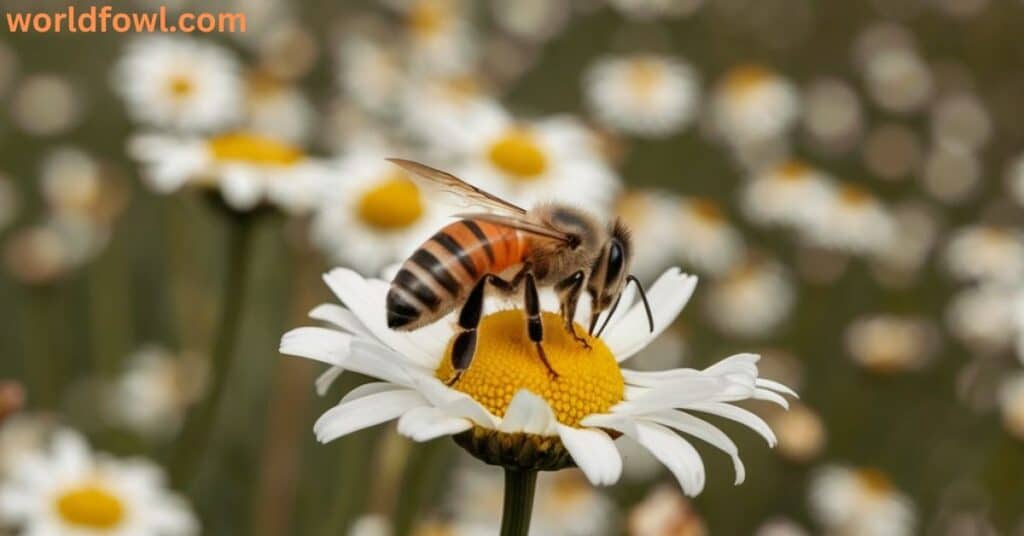
Knowing how to avoid bee attacks is crucial for staying safe. Here are some practical tips for reducing the risk of getting stung:
Wear Appropriate Clothing
Bees are attracted to bright colors and floral patterns, so it’s best to avoid wearing these when spending time outdoors in areas where bees are common. Stick to neutral-colored clothing like white, beige, or light blue.
- Avoid Perfumes and Scents: Bees are attracted to sweet fragrances, so avoid using perfumes, scented lotions, or deodorants that may draw them in.
- Cover Exposed Skin: Wear long sleeves, pants, and shoes when walking through areas known for bee activity.
Move Slowly and Calmly Around Bees
If you find yourself near bees, avoid sudden or erratic movements. Bees are less likely to attack if you remain calm and move slowly. Quick gestures or swatting at the bees may provoke them.
Avoid Bee Hotspots
Bees are often found in places with plenty of flowers or water sources. If you know that certain areas are known for having high bee activity (such as gardens or orchards), try to steer clear of these places.
Use Natural Bee Repellents
Some natural repellents, like citronella or eucalyptus oils, can help keep bees at bay. While they may not guarantee complete protection, they can reduce the likelihood of a bee encounter.
Know When to Seek Professional Help
If you notice a bee nest near your home or workplace, it’s best to call a professional beekeeper or pest control expert to handle the relocation. Trying to remove the hive yourself can lead to bee attacks.
See Also : Do Penguins Attack Humans? Surprising Facts!
What to Do if You’re Stung
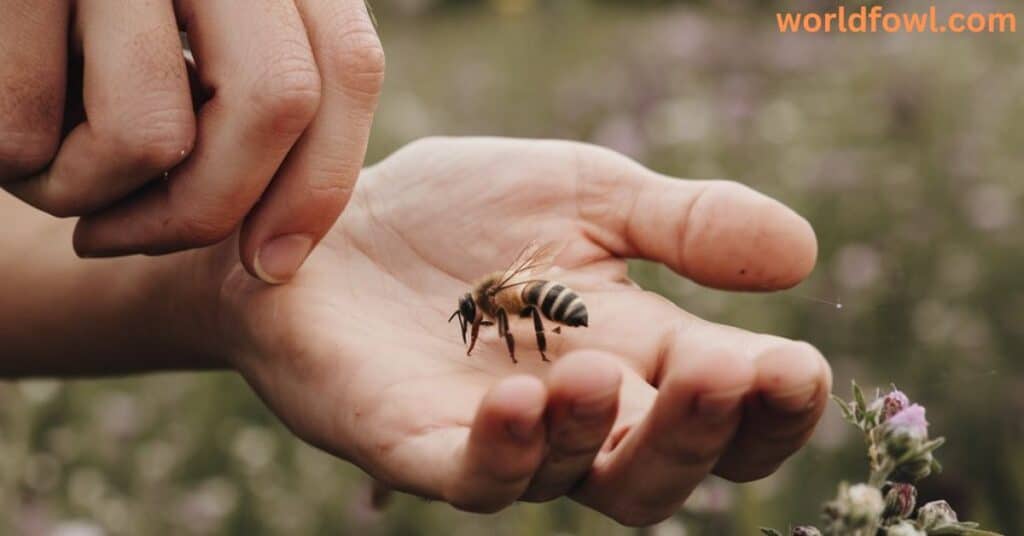
Despite your best efforts, there may still be times when a bee sting is inevitable. Here’s what to do if you find yourself stung:
Immediate Bee Sting Treatment
- Remove the Stinger: Use a flat object like a credit card to scrape the stinger off. Avoid pinching the stinger, as this can release more venom.
- Clean the Area: Wash the sting area with soap and water to prevent infection.
- Apply Ice: To reduce swelling and pain, apply an ice pack to the sting for about 10 minutes.
When to Seek Medical Help
Seek immediate medical attention if you experience any of the following symptoms:
- Difficulty breathing
- Swelling of the face or throat
- Dizziness or nausea
- A severe allergic reaction (anaphylaxis)
Home Remedies for Pain Relief
- Baking Soda Paste: A paste made from baking soda and water can help neutralize the acid in bee venom and provide relief.
- Aloe Vera: Applying aloe vera gel can soothe the skin and reduce inflammation.
See Also : Hornet Spiritual Meaning: Strength, Protection, and Transformation
The Role of Bees in the Environment
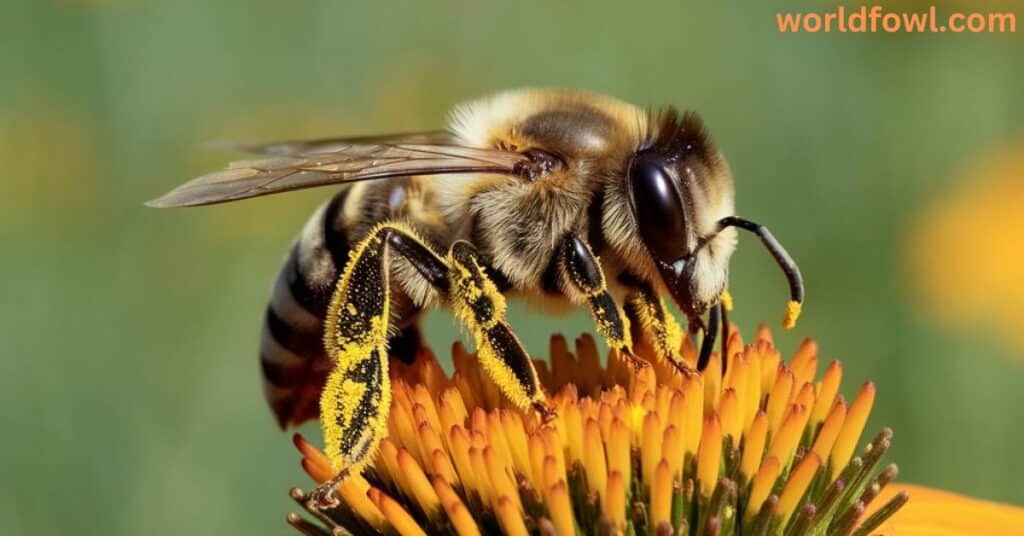
Bees are often referred to as pollinators in agriculture because of their pivotal role in the fertilization of flowers. Without bees, many of the foods we rely on—fruits, vegetables, nuts, and even coffee—would be much harder to produce.
Pollination and Ecosystem Health
- Biodiversity and Bees: Bees help maintain biodiversity by pollinating wild plants that provide food and shelter for a variety of other species.
- Agricultural Impact: Bees are responsible for pollinating approximately one-third of the food we eat. Their role in pollination is critical for both our ecosystems and economies.
The Threats Facing Bees
Unfortunately, bees are facing numerous threats, including pesticides, habitat loss, and the effects of climate change. The decline of bee populations poses a serious risk to our global food supply and biodiversity.
- Pesticides: Studies have shown that exposure to certain pesticides can harm bee health and disrupt their ability to forage and communicate.
- Climate Change: Shifting weather patterns are altering flower blooming times, creating a mismatch between when bees are active and when flowers are available.
FAQs
Why do bees die after they sting?
When a bee stings, its barbed stinger becomes lodged in the skin. The act of stinging tears the stinger and part of the bee’s abdomen from its body, causing the bee to die shortly afterward.
Are all bees aggressive?
No, not all bees are aggressive. While honeybees are generally defensive of their hives, most species of bees are non-aggressive and will only sting if they feel threatened.
Can bees detect fear?
Bees can sense pheromones released by humans, but they do not “detect fear” in the way humans perceive it. However, humans who are afraid may release more pheromones, which can make bees more likely to sting.
What attracts bees to humans?
Bees are drawn to bright colors, floral patterns, body odors, and sweet fragrances. Avoiding these can help minimize your risk of attracting them.
What should I do if I’m allergic to bee stings?
If you’re allergic to bee venom, carry an epinephrine auto-injector (EpiPen) and seek medical help immediately if stung.
Conclusion: Why Do Bees Attack Humans?
Understanding why bees attack humans comes down to their natural instincts of self-preservation and hive defense. By being aware of the factors that trigger bee aggression, such as sudden movements, certain scents, and vibrations, we can minimize the risk of stings. At the same time, it’s crucial to recognize the vital role bees play in pollination and biodiversity. Protecting bees and supporting honeybee conservation efforts is essential for a healthy environment and future food security.
As we continue to coexist with bees, being mindful of their behavior and respecting their space is the key to avoiding unwanted interactions. Stay calm, understand their instincts, and help safeguard these essential creatures for generations to come.

Henry James is a seasoned blogger and a passionate storyteller on “World Fowl.” With years of experience crafting engaging content, he brings a unique blend of expertise and creativity to his writing. Henry specializes in exploring diverse topics with depth and clarity, captivating readers worldwide.

